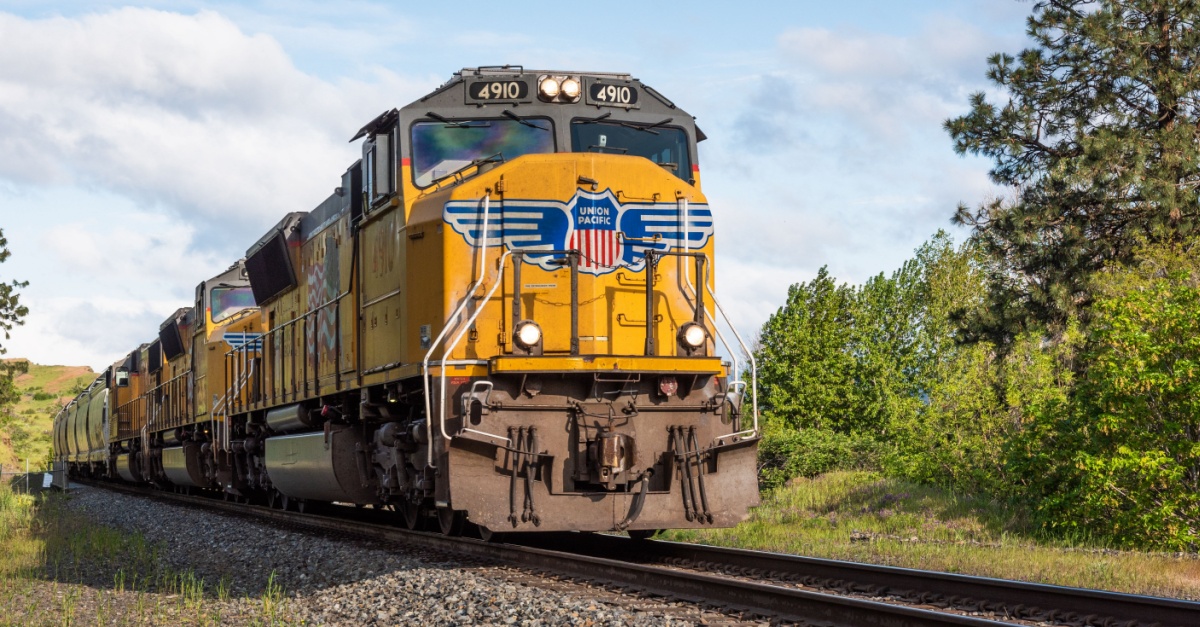

The freight industry is facing rapid changes across rail, drayage, trade policy, and cargo crime enforcement. From a potential $200 billion rail megamerger to rising cargo theft, recent headlines are revealing the cracks in the system and big shifts that lie ahead.
First, we examine Union Pacific’s potential acquisition of Norfolk Southern and its impact on reshaping North American rail operations. Then we dive into the drayage sector, where surging costs and brutal price competition threaten the survival of small operators.
We also break down the end of the Tomato Suspension Agreement, a trade policy move that has rippled through cross-border produce logistics. And a Senate hearing on cargo theft raises tough questions about the effectiveness of enforcement and data collection.
Union Pacific is exploring a $200 billion acquisition of Norfolk Southern to create the first coast-to-coast U.S. freight rail network, which would be far larger than the $31 billion CP-KCS merger in 2023. Both operate under precision scheduled railroading (PSR), but there’s tension: UP’s CEO has questioned intermodal profits, while NS relies heavily on container traffic.
The merger could disrupt current rail alliances — especially those involving BNSF, CSX, and shippers like J.B. Hunt, which is tightly linked to BNSF. A UP-NS deal could limit CSX’s access to shared containers and shift contract leverage across the industry. Some analysts argue CSX might offer a better fit, but with fewer synergies.
Drayage firms nationwide are under pressure. Rates have plummeted, costs are rising, and many small operators are facing collapse or consolidation. RoadOne’s Ken Kellaway called today’s market “the worst cost pressure” of his career, blaming price wars driven by brokers and tech platforms.
In California, clean truck mandates and environmental regulations are further raising costs. The recent shutdown of GSC Enterprises in Oakland highlights the fragility of smaller players, even as AI-powered brokers are undercutting traditional pricing, and excess post-COVID capacity is keeping rates low.
TGS Logistics’ Robert Loya says survival now favors companies with deep pockets, while fleets with under 50 trucks struggle to stay afloat.
The U.S. has ended the 2019 Tomato Suspension Agreement with Mexico, slapping a 17% duty on fresh Mexican tomatoes. The move, aimed at protecting U.S. growers, is praised by domestic producers but has stirred trade tensions.
Mexican tomatoes account for nearly 70% of the U.S. supply, valued at $3.12 billion in 2024. Experts expect prices to rise by 7% and critics argue that the decision could harm jobs, exacerbate inflation, and strain bilateral relations. Mexico’s president condemned the tariff and vowed exports would continue.
Shippers now face rising costs and tighter margins in an already fragile supply chain for produce.
Cargo theft is growing rapidly, and the Senate is taking notice. At a recent Judiciary Committee hearing, lawmakers highlighted how organized retail crime is moving from stores to supply chains.
But the numbers vary: The National Insurance Crime Bureau estimated over $1 billion in 2024 losses, with a 22% jump likely in 2025. CargoNet logged 3,625 thefts across the U.S. and Canada, up 27% year over year. Law enforcement data is also fragmented, and agencies often lack coordination. Proposed federal laws aim to unify efforts; however, inconsistent reporting remains a significant barrier to effective action.
The National Motor Freight Traffic Association’s new density-based freight classification system went live on July 19. It simplifies the rating of LTL shipments, removing factors such as stowability and liability for most goods.
FedEx Freight, however, has delayed enforcement for 150 days to give shippers time to adjust.
When active, discrepancies between declared and actual shipment data, such as weight mismatches, will trigger surcharges (e.g., $38 for weights off by 50 pounds or more). Other carriers are already using dimensioning tools to improve accuracy. The new rules aim to bring standardization but also raise the bar for shippers to get details right.
We understand that fluctuating tariffs have created an unstable environment. However, we can promise you a few things during this turbulent period. When you call, we answer. No matter the hour. We respond when you have urgent shipping needs. No matter the challenge.
When you work with VCPB, you can always count on: